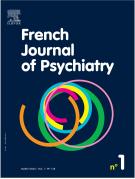Migrants at risk of psychosis in France: different contexts of increased vulnerability - 29/05/20
Résumé |
Background The association between migration and psychosis is well established in many European countries (Jongsma et al., 2017). However, this risk varies across the different ethnic groups and countries, suggesting the role of life events related to the migration process and social adversity in the host country (Bhugra, 2004). Migration in France is characterized by many waves since the 19th century, with different profiles (asylum seekers, economic migration) and origins of migrant groups. Given this, it is important to identify the different contexts and exposures associated to higher vulnerability for psychosis, and the related migrant groups.
Methods We will present new data on psychosis among migrants in the general population, as well in groups exposed to high psychological distress, such as homeless and asylum seekers.
Results Studies in general population show increased incidence and prevalence of psychosis among first and second-generation migrants in comparison to natives. This risk is influenced by socio-economic disadvantage. Among migrants in increased social disadvantage (homelessness), associated risk factors for psychosis and psychotic like experiences are more related with recent life events than with childhood adversity. Finally, data on psychiatric evaluations of recent arrived asylum seekers on the Parisian refugee camp identify important psychological distress related to traumatic experiences before and during migration, great rates of psychotropic prescription, referral to outpatient mental health services and acute hospitalization.
Conclusion We observe in France an association between migration and psychosis. However, this risk is related to different stressful exposures across the different migrant groups and contexts. To identify local and specific risk factors will help to better organize tailored mental health care.
Le texte complet de cet article est disponible en PDF.Keywords : Migration, Psychosis, Asylum seekers, Homeless
Vol 1 - N° S
P. S168 - novembre 2018 Retour au numéroBienvenue sur EM-consulte, la référence des professionnels de santé.
L’accès au texte intégral de cet article nécessite un abonnement.
Déjà abonné à cette revue ?


